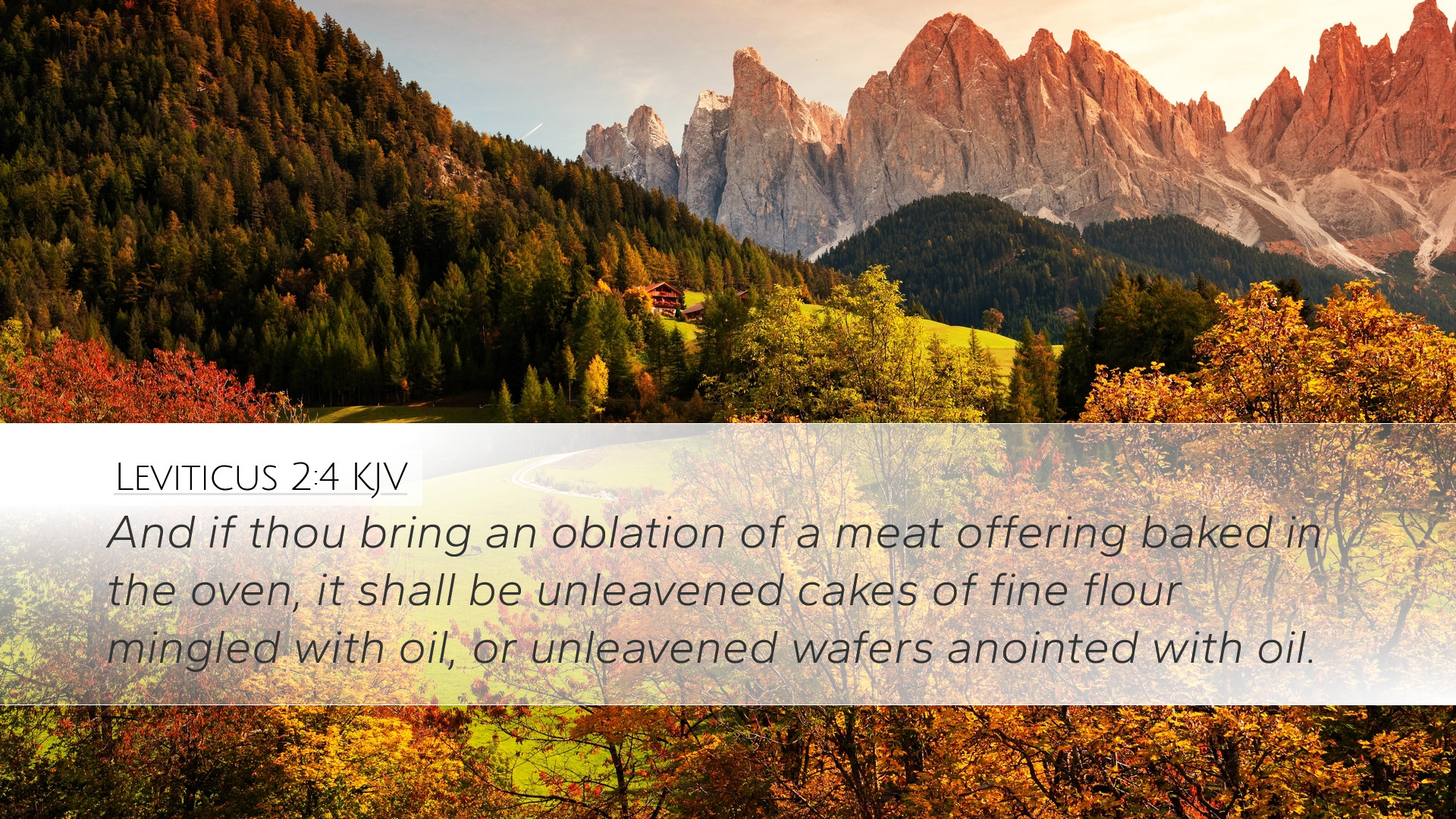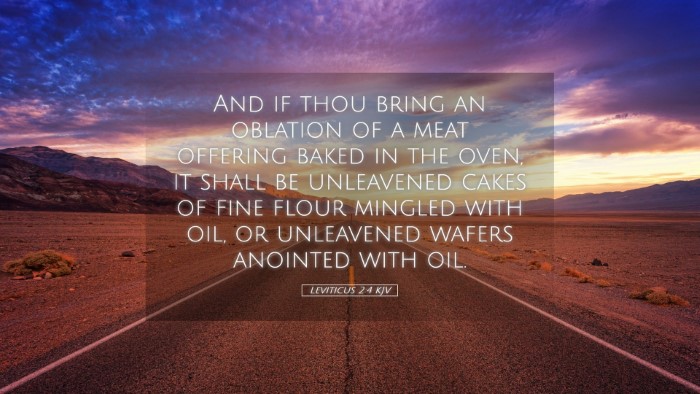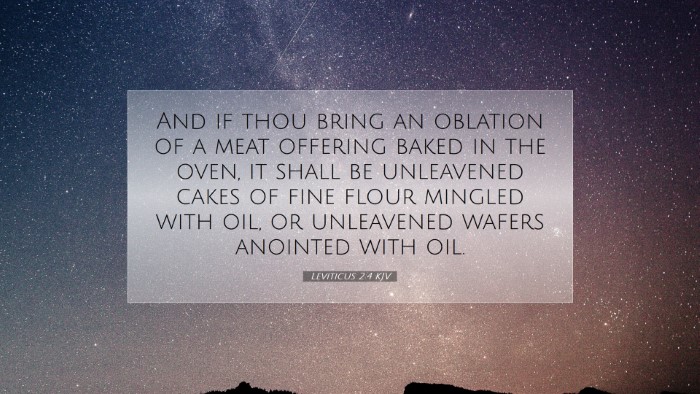Commentary on Leviticus 2:4
Verse: "And if thou bring an oblation of a meat offering baked in the oven, it shall be unleavened cakes of fine flour mingled with oil, or unleavened wafers anointed with oil."
Introduction
The second chapter of Leviticus deals with the Meat Offering, which is not to be confused with meat as we understand it today, but rather refers to a grain offering. This offering symbolizes the dedication of the fruits of the earth to God and signifies thanksgiving for His provision.
Significance of Unleavened Cakes
According to Matthew Henry, the unleavened cakes symbolize purity and the absence of sin. Leaven is often used in Scripture as a metaphor for corruption and sin (see Matthew 16:6), which conveys a profound spiritual lesson that approaches to God should be made with sincerity and honesty.
Interpretation of the Offering
Albert Barnes adds that the meat offering signifies a total dedication to God. The phrase "baked in the oven" implies a careful process of preparation, reflecting the value of offering our best to God. It also denotes a transformation through fire, representing trial and purification as believers undergo spiritual refinement.
Form of the Offering
- Fine Flour: The use of fine flour signifies quality and represents the best of what one has to offer. God desires the best of our labors.
- Mingled with Oil: Oil represents the presence and anointing of the Holy Spirit, vital in all forms of worship.
- Unleavened Wafers: These wafers, much like the cakes, emphasize a focus on purity in the believer's life and worship.
Theological Implications
The mention of oil in the offering highlights the profound relationship between the Holy Spirit and worship. Adam Clarke stresses that oil symbolizes joy and the gracious enablement of the Holy Spirit. Our offerings to God must come from a heart that is not only pure but filled with the joy of salvation.
Application for Today
This command regarding the grain offering has significant implications for modern worship and ministry. It demands that believers offer their best to God without any corruption from sin. The coupling of the grain with oil underlines the need for our offerings to be spiritually alive and enlivened by the Holy Spirit’s presence.
Implications for Ministry
- Quality Over Quantity: Churches and ministries today should be encouraged to foster quality worship and service rather than mere quantity.
- Symbol of Dedication: Every act of service—from preaching to community outreach—should be an offering made without leaven, reflecting purity and sincerity.
- Empowered by the Spirit: Just as oil was mixed with the offering, our efforts in ministry must be empowered by the Spirit for true effectiveness.
Conclusion
The offering described in Leviticus 2:4 is much more than a historical ritual; it teaches profound truths about our relationship with God. It challenges us to present ourselves as living sacrifices—pure, empowered, and offered willingly to fulfill God's purposes. As we navigate our roles as leaders, students, and scholars of the Word, let us reflect on what it means to approach the Lord with offerings that are not tainted by sin but rich in devotion and sincerity.
In summary, let us embrace the significance encapsulated in Leviticus 2:4 as a template for our worship and service, ensuring that all we offer—be it in ministry, study, or worship—is done with a heart that seeks His glory above all.


